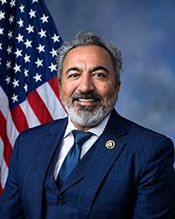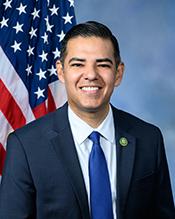H.R. 1379: Trafficking Survivors Relief Act of 2025
This bill, titled the Trafficking Survivors Relief Act of 2025, is designed to assist victims of human trafficking by allowing them to vacate certain criminal convictions and expunge related arrest records. Here’s a breakdown of its main provisions:
Key Provisions
1. Definitions
The bill introduces several definitions, including:
- Victim of trafficking: As defined in the Trafficking Victims Protection Act of 2000.
- Level A offenses: Non-violent Federal offenses.
- Level B offenses: Violent Federal offenses (with exceptions regarding child victims).
- Level C offenses: Any Federal offense that does not fall into level A or level B.
- Covered prisoner: An individual who has been convicted and is currently imprisoned for a level A or level B offense.
2. Motions for Vacating Convictions and Expunging Arrests
Victims of trafficking can petition the court to vacate convictions for level A offenses or to expunge arrests for level A and C offenses if the conduct that led to these legal issues was a direct result of their victimization. To qualify, petitioners must provide evidence supporting their claims, and the process includes specific timing for government responses and mandatory hearings.
3. Court Considerations
When determining these motions, the court must consider:
- Whether the individual was indeed a victim of trafficking.
- The circumstances surrounding the offense and its connection to their status as a victim.
4. Hearings and Judicial Process
If the government contests the motion, a hearing must occur within a specific timeframe. The court can grant motions if it finds by a preponderance of evidence that the individual’s criminal activity was a direct result of their status as a trafficking victim.
5. Expungement Orders
Upon granting a motion, the court will vacate the conviction or expunge the arrest, effectively removing references from all records. This means that the individual will no longer be considered convicted under Federal law, and all traces of their arrest will be erased.
6. Mitigating Factors for Sentencing
For individuals currently serving sentences for level A or B offenses, the bill allows for reduced sentences if the court finds their actions were a direct result of being a trafficking victim.
7. Confidentiality and Fees
Motions and related documents filed in these cases will remain confidential and sealed from public view. Additionally, petitioners will not incur any fees for filing motions under this act.
8. Applicability
The provisions of this bill apply to any convictions or arrests occurring before, on, or after the enactment of this law.
Reporting and Oversight
The bill requires reports from U.S. Attorneys detailing the number of motions filed and their outcomes, ensuring oversight and follow-up on the implementation of this act. Additionally, the Government Accountability Office will assess the Act’s impacts within three years of its enactment.
Human Trafficking Defense
This legislation also introduces a "human trafficking defense" for individuals charged with certain offenses, establishing a presumption of duress if they can prove they were victims of trafficking at the time of the crime. This defense can influence sentencing and eligibility for federally funded programs aimed at aiding trafficking victims.
Relevant Companies
None found
This is an AI-generated summary of the bill text. There may be mistakes.
Sponsors
17 bill sponsors
-
TrackRussell Fry

Sponsor
-
TrackNicholas Begich

Co-Sponsor
-
TrackAmi Bera

Co-Sponsor
-
TrackAndy Biggs

Co-Sponsor
-
TrackDebbie Dingell

Co-Sponsor
-
TrackByron Donalds

Co-Sponsor
-
TrackRobert Garcia

Co-Sponsor
-
TrackWesley Hunt

Co-Sponsor
-
TrackHenry C. "Hank" Johnson, Jr.

Co-Sponsor
-
TrackKevin Kiley

Co-Sponsor
-
TrackGreg Landsman

Co-Sponsor
-
TrackMichael Lawler

Co-Sponsor
-
TrackTed Lieu

Co-Sponsor
-
TrackDeborah K. Ross

Co-Sponsor
-
TrackDerek Schmidt

Co-Sponsor
-
TrackEmilia Strong Sykes

Co-Sponsor
-
TrackAnn Wagner

Co-Sponsor
Actions
2 actions
| Date | Action |
|---|---|
| Feb. 14, 2025 | Introduced in House |
| Feb. 14, 2025 | Referred to the House Committee on the Judiciary. |
Corporate Lobbying
0 companies lobbying
None found.
* Note that there can be significant delays in lobbying disclosures, and our data may be incomplete.
Potentially Relevant Congressional Stock Trades
No relevant congressional stock trades found.